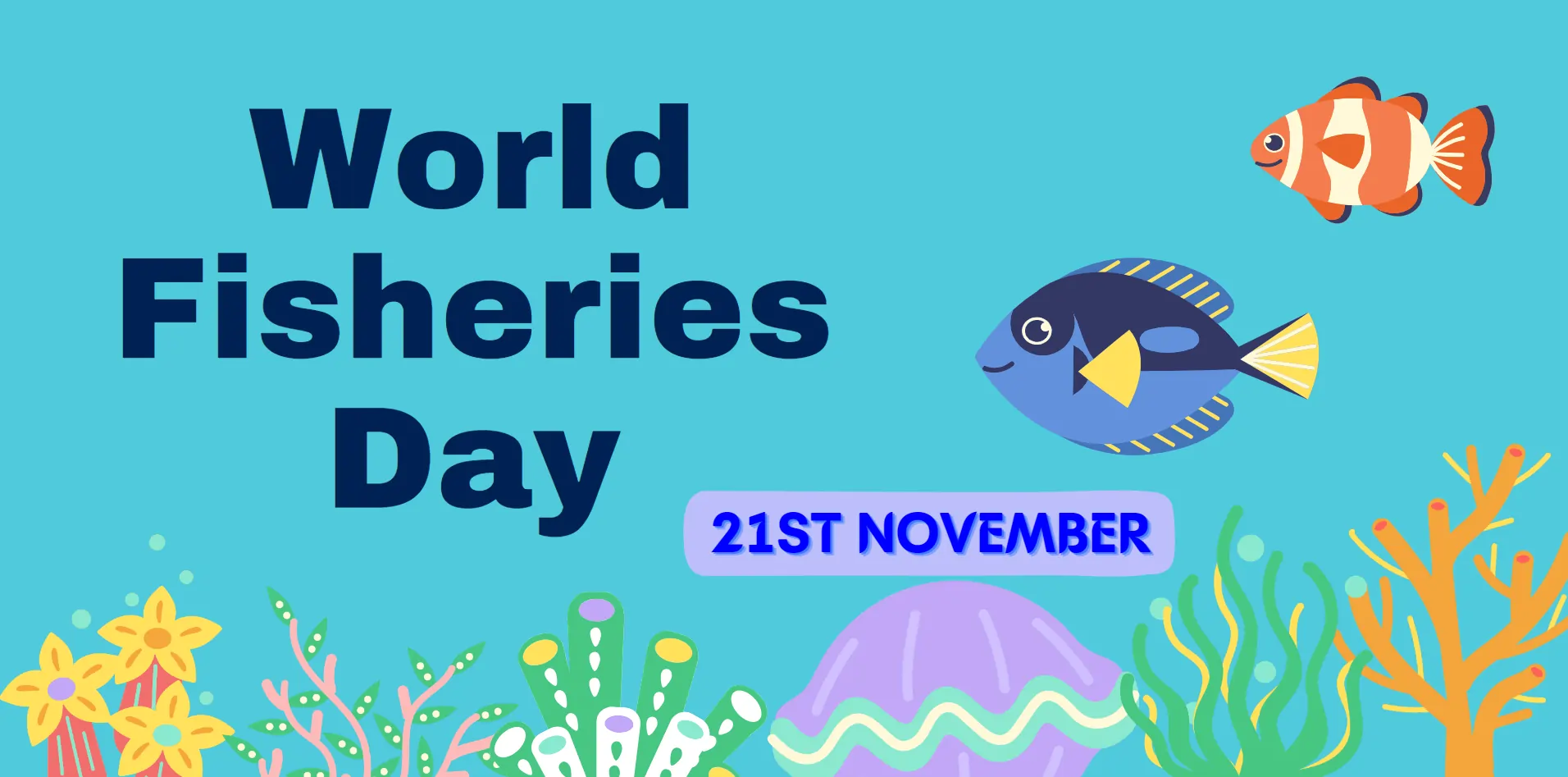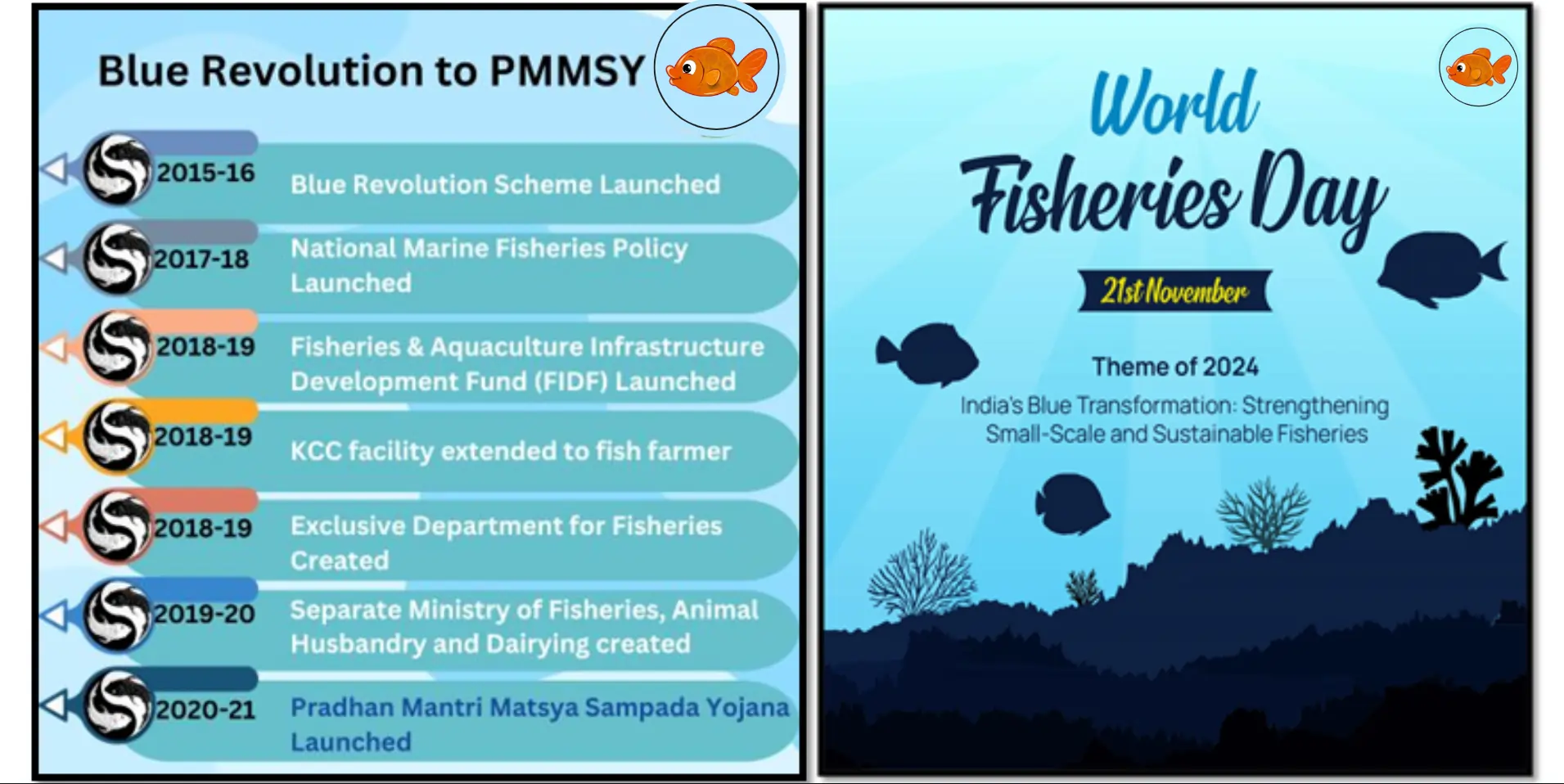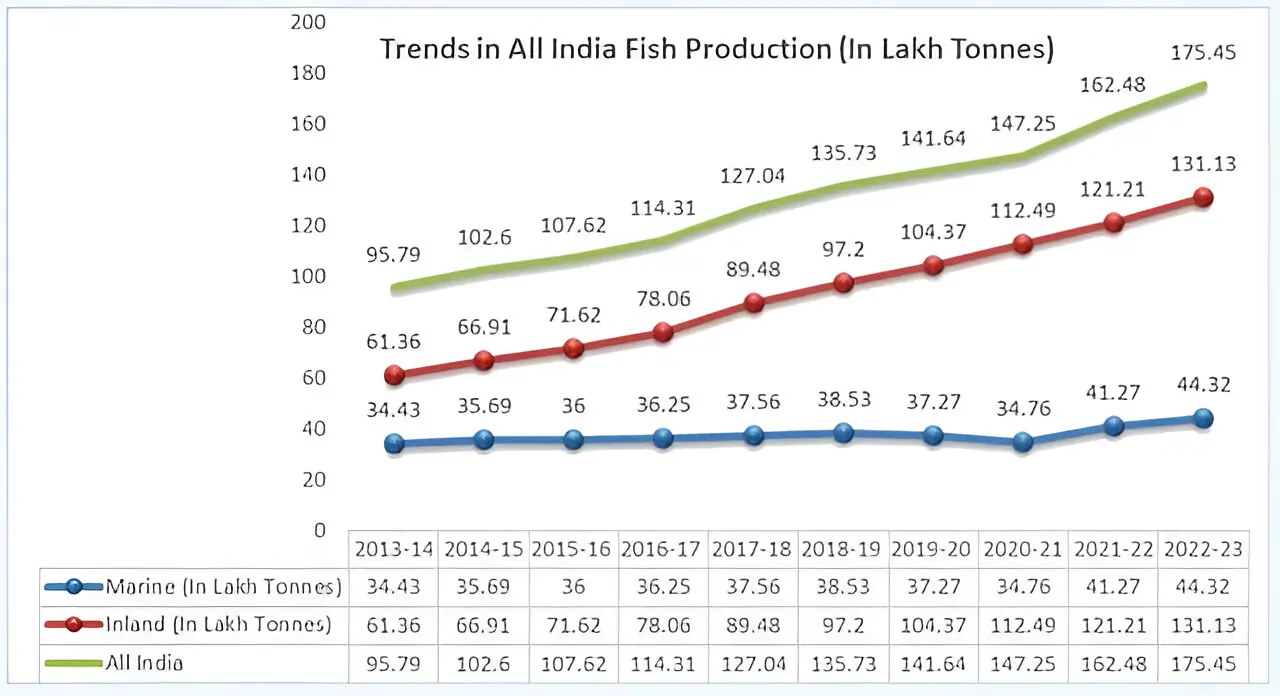
As held every year on the 21st of November, the world fisheries day is very important since the purpose is to celebrate fisheries and aquaculture as the unique contributors to the lives of communities all across the world. This day provides a chance to remember contribution of healthy aquatic ecosystem and the millions of people for whose food, income and culture fisheries are valuable.
The Significance of Fisheries
Currently, fisheries form an important part of the world’s population’s diet supply because they are among the principal sources of protein. It sustains the direct employment of more than 40 million people involved in fishing and aquaculture and millions others from related industries of production, packaging, trading and other related services. Furthermore, fisheries provide the main income source for many coastal society and indigenous people, they represent a culture that has been existent for centuries.
Struggling Issues Facing the Fisheries Segment
Nevertheless, the sector is facing various challenges that affect its sustainability and the general welfare of the people depending on the sector. The problem of growing international appetite for fish has resulted in over exploitation of fish resources through un-Sustainable fishing practices. Surveys conducted by the food and agricultural organization (FAO) reveal that almost every agricultural commodity studied is again in our dietary intake, over one-third of the world’s fish stock is overexploited and the future yield from the world’s fisheries is in danger.
It intensifies these problems because the climate conditions change water temperature, currents, and the species’ living environment in the ocean. Other challenges affecting marine ecosystem and its component include pollution, habitat destruction and Illegal, Unreported and Unregulated Fishing (IUU Fishing).
Promoting sustainable fisheries
Its celebration annually is an important intervention since there is a constant call to promote sustainable use of Fisheries resources and conservation of water bodies. Coastal fisheries management is a complex process that aims at achieving sustainable fishing practices which respond to the biological, economic, and social systems.
Key strategies for promoting sustainable fisheries include:
- Implementing Science-Based Management: Integrating reference to scientific practices for the development of policies which would regulate fishing practices as they do not exceed the reproductive ability of the fish stock.
- Protecting Marine Habitats: Creating Marine Protected Areas to protect important species and species habitats in order to ensure that the societies derive important ecosystem services from the marine ecosystem.
- Combating IUU Fishing: Improving compliance and enhancing cooperation on the regional and global level to address IUU fishing that threatens achievement of sustainable management goals.
- Supporting Community-Based Management: Allowing local communities to becoming drivers in the management of their fisheries with the assistance of traditional and contemporary techniques.
Innovations in Aquaculture
Fish farming or aquaculture is fast becoming a significant factor in fish supply world over and is estimated to contribute 47% of the global. New approaches in the fish farming have the benefits of reducing pressure on the wild fish stock and provide a sustainable animal protein.
Combating of main Eco-negative externalities includes reduction on use of wild fish stocks in feeding fish farms, management of wastes and control of diseases. The sustainable concept within the field of aquaculture can be described as integrated multi-trophic aquaculture (IMTA), which also combines different species in one system to optimize the use of the ecosystem.
Celebrating Fisheries and Aquaculture
This is so desirable, especially at the time when world fisheries day is a perfect occasion for celebrating the resourcefulness of fishers within the global fisheries and aquaculture sector. Activities to be carried out during this event celebrate people in the fishing industry, farmers, researchers, and conservationist essential for resources sustainable practices.
Public awareness activities and information dissemination are thus essential in the enhancement of the knowledge that provokes changes in the social practices concerning fisheries. Through awareness campaigns, we get to encourage responsible consumption so as to try and protect our oceans and the people who rely on them.
India Celebrate World Fisheries Day 2024
India – the maritime country for age old naval history honoured the World Fisheries Day on November 21, 2024 with lots of passion and dedication towards sustainable fisheries. This year's theme indicates the country’s commitment to enhance its commitment on sustainable fisheries and promote small-scale fisheries.

Key Initiatives Launched
Sushma Swaraj Bhawan in New Delhi was the venue for the event being organized by the Department of Fisheries (DoF) under the Ministry of Fisheries, Animal Husbandry and Dairying.
To support sustainable fisheries and aquaculture, the following important measures were undertaken: These included:
- 5th Marine Fisheries Census: Intended to support evidence-based decision-making, especially in the area of fisheries management, this census will also give an idea about the state of marine fish stocks.
- National Plan of Action on Sharks: Which concerns the major directions of this plan, namely sustainable shark management, which remains among the most significant and pressing tasks.
- Bay of Bengal-Regional Plan of Action on IUU Fishing: Intended to address one of the world’s largest sources of IUU fishing this plan would seek to protect the stocks in the BoB region.
- IMO-FAO GloLitter Partnership Project: This project focuses only on marine plastic litterage to help minimize the spread of plastics in marine systems.
- Standard Operating Procedures for Retrofitted LPG Kits: Such procedures foster cold, energy saving and cheap marine fishing fuels making fishing practices sustainable.
Technical Sessions and Discussions
The event had two technology sessions that covered important information regarding sustainable fishery and aquaculture. The first session is to examine cooperation and goals for sustainable development of fisheries. The second session, calls for the climate change and related issues and the future measures.
Honouring Contributions
As a part of the celebration the states, union territories, and individuals and entrepreneurs were bestowed upon for their commendable performance for the development of Indian fisheries and aquaculture sector. The second aspect was to praise the community involvement in fishery; and the people who pay much effort to maintain the fishery sector.
India’s Role in Global Fisheries
India has a crucial position in the global fisheries sector and also contributes impressively to the world’s fish production and exportation. It regards fisheries and aquaculture sectors crucial to boost up Indian economy, food security and the mode of living for millions of Indian people as it is second largest fish producer globally. Below are the features that indicate the importance and success of fisheries in India.

Key Facts and Achievements
- Second-Largest Fish Producer: The fish production in India has risen to about 8 percent of the world’s total fish production making India the second largest fish producer in the world. This great contribution tells more of the role of the sector in the economy and to the nation’s food basket.
- Leading Producer of Inland Fish: India has done rather well in the inland fisheries sector and is today the largest producer of inland captured fish and cultured fish, (aquaculture). On the same note, counter coastal/aquatic capture, inland aquaculture has been instrumental in enhancing fish yields, and generating sources of income in the rural countryside.
- Major Exporter of Seafood: As one of the major exporters of seafood, India's marine goods are a significant source of foreign currency earnings. Seafood located in the country’s export list comprises shrimp, fish, cuttlefish, and squid which are consumed internationally.
- Diverse Fisheries: Indian fisheries sector is a multifaceted and it consists of wild fisheries that include marine fisheries and inland fisheries and aquaculture fisheries. This diversification in fish species thus enable broad production coverage of fish species and other aquatic products for both the domestic as well as export market demands.
- Employment and Livelihoods: About 14.5 million people are directly involved in fish production and fish processing both in fisheries and aquaculture in India. Besides, millions other get engaged in other activities like fish processing, marketing, and distribution.
- Growth in Aquaculture: The rapid growth of aquaculture in India has been a key driver of increased fish production. Innovative practices and technologies have been adopted to enhance productivity and sustainability in aquaculture, contributing to the overall growth of the sector.
Government policy and measures in sustainable Fisheries
India’s government has introduced different programs and policies for development and to promote sustainable fisheries for increased productivity, sustainable yield and economic returns on fishery resources. Here are some notable initiatives:
- Pradhan Mantri Matsya Sampada Yojana (PMMSY): The PMMSY was launched in 2020 and is a central scheme on Fishers’ income doubling and sustainable fisheries & aquaculture. The scheme is designed at increasing fish production and productivity, increasing infrastructure and marketing facilities, and most importantly the efficient utilisation of resources.
- National Fisheries Policy (NFP): Through this structure, the NFP offers a structure in which the Ministry and other authorities can then harness and forge the future of the fisheries sector. These include promoting the idea of sustainable use of aquatic resources and resource conservation; protecting and wisely using both marine and inland fishery resources; and encouraging ethical and ecologically friendly fishing practices.
- Blue Revolution Scheme: The Blue Revolution has been launched with a view to unlocking the fisheries sector to the extent of modernising it and making it sustainable. The emphasis is placed on production of fish, the improvement of the aquaculture systems, and on the establishment of suitable post-harvest facilities and marketing networks.
- Marine Fisheries Management: Marine fisheries have been well managed due to the implementation of policies that seek to promote sustainable exploitation of the nation’s marine resources. These are constructing the Marine Protected Areas (MPA’s), having measures in place by way of avoiding fishing during the period of breeding.
- Integrated Fisheries Development Scheme (IFDS): The IFDS essentially is expected to foster the synchronization of the fisheries sector through financial targets for support of infrastructure, technology and development of the human resources of fishers and fish farmers.
- Skill Development and Training: In its bid to increase the capacity of fishers and fish farmers, the government has initiated several skill development and training programs. These include programs that enhance modem fishing trends, aquaculture and value addition to increase yields and revenue profiles.
- Fish Farmer Producer Organizations (FFPOs): The establishment of FFPOs aims to empower fish farmers by organizing them into cooperative groups. With inputs, credit, technology and markets, FFPOs give the fish farmers ways of improving their production and profitability.